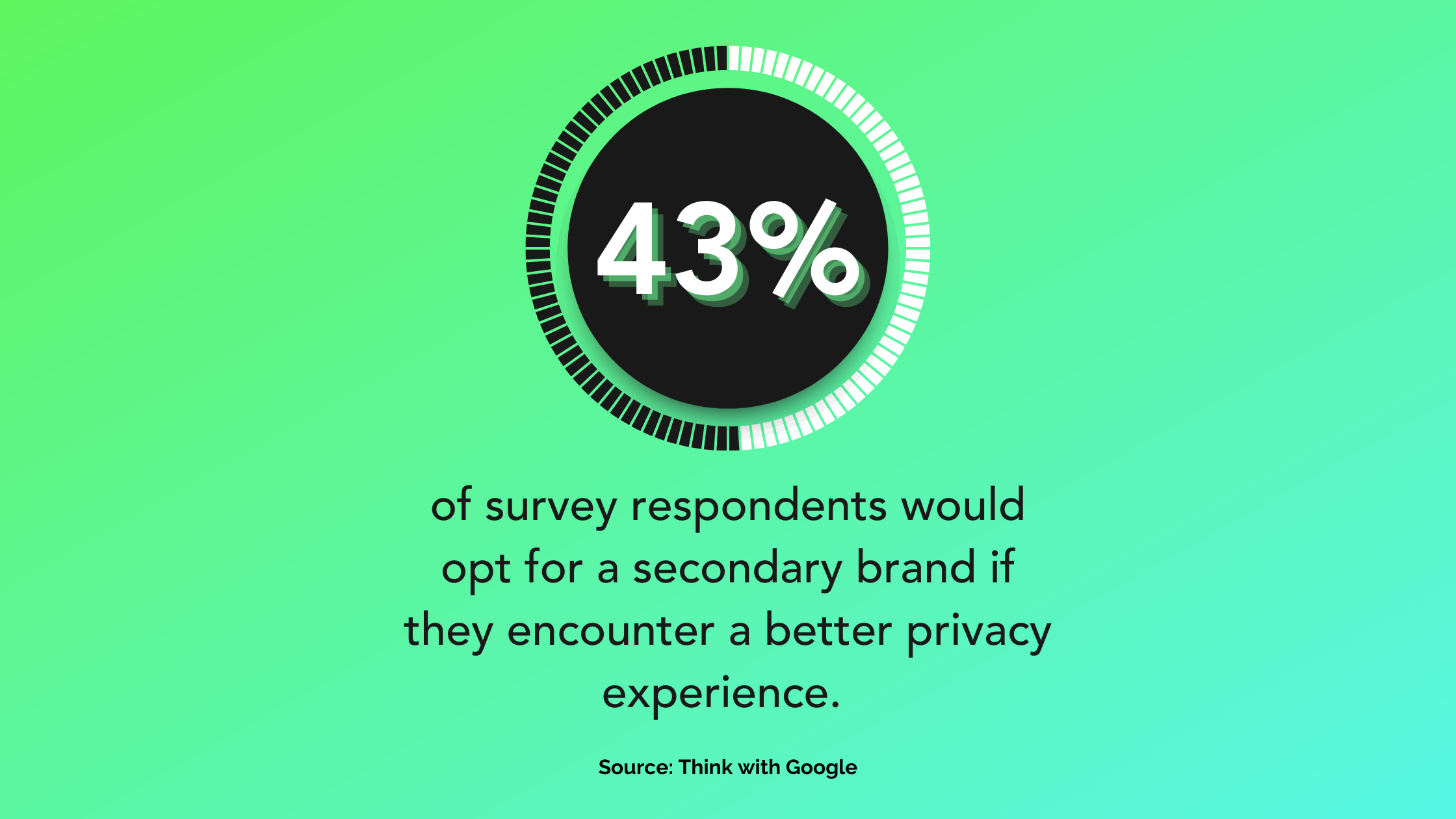A Privacy-First Approach to Data-Driven Marketing
A Privacy-First Approach to Data-Driven Marketing
In response to the growing concerns over data privacy in recent years, the rise of regulations such as the GDPR and CCPA are reshaping our digital landscape, prioritizing internet user data protection, and redefining how we handle data. As digital marketers, developing a strong privacy-first strategy is vital to continue delivering great consumer experiences and strong results for businesses.
In fact, 43% of people say they’d switch from their preferred brand to a second-choice brand if the latter provided a good privacy experience.
First-Party Data and AI
Marketers are turning to different types of first-party data, which refers to the information collected and managed within a business’s own domain. Platforms that have vast user bases and first-party data Google and Meta, offer personalized, contextual targeting options while maintaining compliance. These platforms enable marketers to utilize geo-targeting capabilities and often deliver strong ROI.
In addition to leveraging first-party data on social media platforms, predictive AI-powered analytics are becoming increasingly sophisticated, enabling marketers to forecast the impact of their marketing strategies and anticipate future search trends. By harvesting the power of machine learning algorithms, marketers can develop high-value audience segments and optimize ad targeting. As AI technology continues to advance, we can expect more innovative tools in digital marketing to come.
Finally, another way to leverage first-party data is by the implementation of site-tagging. Site-tagging helps businesses define the customer journey within the boundaries of their website, gaining a deeper understanding of user behavior and interactions. This enables marketers to gather valuable insights into higher-intent customers based on their clicks, browsing patterns, and conversion actions. With site tagging, marketers can track key events, such as product views, add-to-carts, and purchases, and use this data to create targeted segments and personalized experiences.
Zero-Party Data
Last but not least, building a trust-based relationship with customers is crucial for a sustainable data strategy. Zero-party data, which relies on customers’ willingness to share information in exchange for personalized experiences and value, is a vital component of this approach. This includes information such as email, communication preferences, purchase intent, or other information that customers voluntarily provide. The value of zero-party data lies in its ability to offer a direct view of a customer’s intent, preferences, and needs, enabling businesses to deliver highly targeted and relevant experiences. By prioritizing transparency, customer-centric organizations can foster trust and encourage customers to share zero-party data, leading to deeper relationships and long-term loyalty.
In a survey conducted on 2,037 Americans in April 2021, 66% of customers agreed that they would consider sharing personal information in exchange for additional value.
Connect with us and learn more about data-driven marketing in a privacy-conscious environment.


